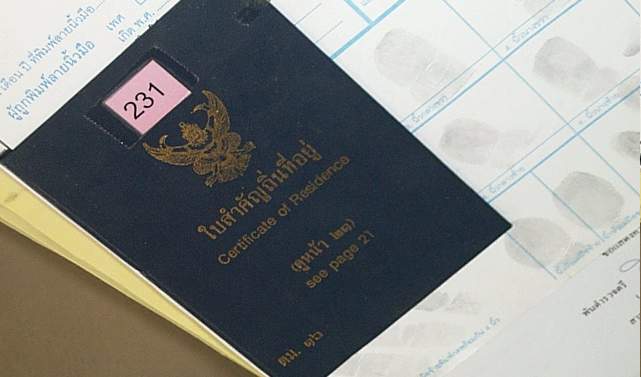How to Spot Dodgy Advisors & Bad Financial
Products
For people living and working in Thailand, there are a number of very legitimate and tax effective ways of making investments or looking for good financial advice in Thailand. But Thailand also attracts its fair share of scammers looking to take your money.
This includes a subgroup of individuals and firms who are either not registered to offer financial advice in Thailand, and not qualified to offer products locally. These include ‘investments in offshore ‘shares’ or local (usually Pattaya based) properties investment ‘opportunities’.
I’ve come across a few of these in my 20 years here – and without naming names – for the most part, their services and products can easily be described as ‘shonky’.
Additionally, there are also products which are sold locally in Thailand. While Thai financial institutions do offer some pretty good investment options (think LTF’s and RMF’s) on the flip side, these same institutions will also try and hard sell ‘savings products’ which offer no value for money and which are aimed at taking advantage of peoples lack of financial literacy.
This article looks at some of my experiences and the lessons I’ve gained from coming across these types of ‘investment’ opportunities.
I want to stress that none of this should constitute financial advice. If you are in the market for formal financial advice should consult those formally registered in Thailand with the Thai Security or Exchange Commission (‘SEC’). You can check out the links here to firms which are currently licensed with the SEC.
Unregistered firms
The Thai Security or Exchange Commission (‘SEC’) runs an extensive list of firms that are not registered to offer financial related services in Thailand, whether they be financial advice, insurance products or wealth and investment management products. That list can be found here.
Nevertheless, unscrupulous individuals and firms will ignore these SEC rules and continue to offer a mix services mainly aimed at unsuspecting expats. They aren’t always the traditional ‘boiler rooms’ per se, but to my mind they come pretty damn close.
Boiler rooms, great investment ‘opportunities’.
In my experience, your introduction to these firms is always the same – an unsolicited phone call, usually from a young sounding Brit who has decided to forgo the career of an unqualified English teacher in Asia, to that of being an unqualified financial consultant in Bangkok.
He has somehow gleaned your phone number from somewhere. And they’ll be keen to tell you about their latest investment ‘opportunities’.
In my time I’ve been pitched anything ranging from ownership of individual car parking places at Glasgow airport yielding 12% p.a to ‘investment opportunities’ in funds managed by well-known fund managers.
It is unsurprising to know that the former opportunity turned out to be, well, troublesome (see here). The other opportunities are not much better however.
The sales pitch in particular for these ‘investment opportunities’ tend to be a bit more nuanced, but they come with a sting in their tail in for the form of excessive fees that eat away at any potential returns.
Great names, zero returns…
In this scenario, a ‘financial advisor’ from a firm with a name which sounds vaguely financial and will call you to ask for a one-on-one meeting, with their head of investments who just happens to be in town from Hong Kong, Singapore, or London.
If you agree to meet – and if the salesman is doing their job – you’ll be made to feel like a sophisticated investor who deserves better than anything the locals have on offer.
Once they’ve buttered you up, they’ll take you through a professional sounding pitch with a suitably glossy brochure showing their ‘relationships’ with mutual funds run some of the world’s most ‘respected investment houses’.
Well-known names such as Deutsche Bank, JP Morgan, Fidelity and UBS will be mentioned to bring an even stronger air of respectability to the conversation. If the salesman has done his job, you will feel that you now have been given the keys to the kingdom and can now invest like the millionaires do.
The common markers of a dodgy financial product
One big give away is the commissions that these ‘advisors’ will be getting from a sale of the product. They won’t tell you this, but they are there for the trailing commission, and not for your financial well-being. Watch them squirm when you ask them how much they are getting paid to sell you a particular product.
You’d also be wise to check the fees of these ‘financial advisors’, and area which they’ll undoubtedly gloss over.
Common ‘fee structures’ – basically to hand over your money to the real money managers – include:
- ‘Investment’ fees ranging between 3-5% each time you hand over cash to them to invest;
- ‘Annual Servicing’ fees of around 1-2% just for them to maintain your investment account through them;
- In addition to these fees, investors then find that they are also subject to extortionate early withdrawal fees, which in some cases wiped out most of what they already put in.
If the ‘product’ they are selling you has these three key features, then it should be taken as a huge warning that the only people who will make money out of this relationship is them, and not you.
Fees that eat away at any return…
Assuming then that your fund goes off and earns 8% or so per year. It is entirely feasible could be left with a miserly 1% return on your investment after fees are taken out.
You may as well have stuck the money in a high return savings account.
So for all intents and purposes, if you get a call from these people, avoid them people like the plague, lest you like to see your investments go backwards at a fast pace.
Local Property “Investments”
In addition to the normal boiler-room chancers, from time to time there are some fly-by-nighters, who seek out to rip off unsuspecting investors.
These go above and beyond just local agents trying to flog you a condo. Rather, these ‘alternative to banks’ market themselves as ‘Wealth accumulation companies’ offering you ‘client focused’, ‘secure’ and ‘transparent’ opportunities to invest in property offering ‘secure, asset backed rental guarantees’ where funds are held in ‘escrow’ (which does not exist in Thailand).
For some reason, they tend also to focus on Pattaya and the eastern seaboard of Thailand, trying to entice investors into purchasing C-grade property investments which have only ever shown an negative return.
Doing your due-diligence
Again, you should do your due-diligence on these companies first checking to see if they have been listed by the SEC as licensed (see here). For those companies calling themselves ‘banks’ you should check to see if they are registered with the Bank of Thailand and if they are not, then run a mile (or expect to have your cash taken from you).
Another massive ‘red flag’ which should raise alarm bells, is anyone who is trying to offer you any property linked investment deals in and around Pattaya. You are simply bound to lose on your investments there.
Finally, it is worth following some well known investigative journalists who keep a close eye on some of the biggest scammers in Thailand. One I particularly like is Andrew Drummond. Do a search for the firm, or individual you are dealing with on his site, and if you see that name, then I’d be very wary and not invest your money.
Questionable Products Sold by Local Banks
At the other end of the scale are sanctioned forms of financial advice in Thailand, but to my mind questionable combined ‘savings and insurance’ products sold over the counter at local Thai banks. My personal perspective is that these products are targeted at those who are financially naïve, given the returns they offer are abysmal and the levels of insurance they provide are no more than what you have saved.
But nevertheless, they sound attractive, as people think they are getting an income stream and some sort of life insurance coverage.
To illustrate how bad these policies are, below is a ‘typical’ example of a 15-year savings/insurance product. On the face of it, it sounds fantastic.
Invest 50,000 baht per year for 5 years (250,000 baht in total). In return, the bank will pay you a ‘dividend’ stream of 2,500 baht per year, and a ‘lump sum’ of 270,000 baht in the final year. Through that entire time, there is also a life insurance policy pay out of 262,000 baht should you die.
| Year | Policy Payment | Dividend | Death coverage |
| 1 | 50,000 | 2,500 | 52,500 |
| 2 | 50,000 | 2,500 | 105,000 |
| 3 | 50,000 | 2,500 | 157,500 |
| 4 | 50,000 | 2,500 | 210,000 |
| 5 | 50,000 | 2,500 | 262,000 |
| 6 | 2,500 | 262,000 | |
| 7 | 2,500 | 262,000 | |
| 8 | 2,500 | 262,000 | |
| 9 | 2,500 | 262,000 | |
| 10 | 2,500 | 262,000 | |
| 11 | 2,500 | 262,000 | |
| 12 | 2,500 | 262,000 | |
| 13 | 2,500 | 262,000 | |
| 14 | 2,500 | 262,000 | |
| 15 | 270,000 | 262,000 | |
| Total | 250,000 | 305,000 |
*All figures in Thai Baht
The bank will tell the buyer, somewhat disingenuously that this represents a 22% return! The naïve buyer will think ‘fantastic’ and I get money back each year.
The reality is somewhat different. Taken over 15 years, the nominal annual return on this money is 1.5% per annum. Taking into account inflation, then this drops to a ‘real’ return of just under 0.7% per year.
Again, if you do the basic math it is not really worth it at all on a stand-alone basis.
There is one, and only one upside to these products as far as I can tell – tax savings. If you are living and working in Thailand, these products are usually tax deductible, and may make some sense particularity if you fall within the higher tax brackets.
For myself, I’ve decided, if you want insurance, buy a straight-out insurance, where the benefit is many multiples of the premium. And if you want to save or invest, do so separately, where the returns are likely to be much higher than 1% per year!







